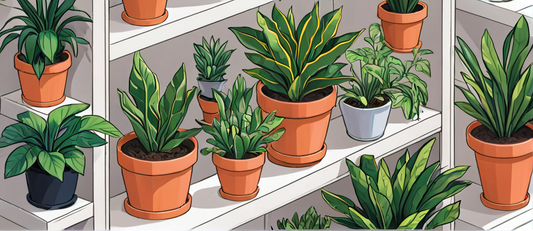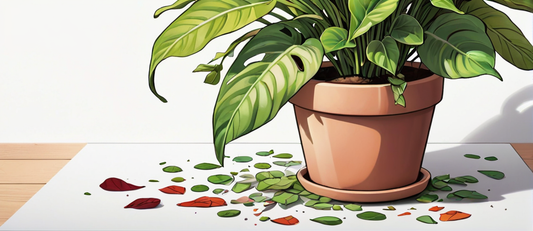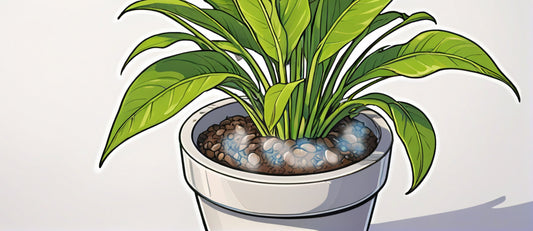

How do I care for indoor Monstera and Swiss Cheese Plants?
Indoor Plant Care | Plant Specific Care
Quick AnswerObsessed with those jungle-vibe Monstera and Swiss Cheese plants? They make a seriously cool statement wherever you put them! The good news is, these leafy show-offs are pretty easy-going. Think loads of bright, but not direct, light, soil that drains well, a bit of humidity for that tropical feel, and something to climb on (or let those leaves go wild and trail!). With a little love, they'll be the stars of your indoor jungle.
Monsteras, with their huge, iconic "Swiss cheese" leaves, are true plant celebrities. They bring instant drama to any space, and they're surprisingly easy-going for such a statement piece. Let's dive into how to keep yours looking lush, from the classic Monstera deliciosa to those stunning variegated rarities.
Monsteras Like It Wild (But Not Too Wild!)
These plants evolved in tropical rainforests, so they do best when we mimic those conditions:
- Bright, Indirect Light: Think of dappled sunlight through the jungle canopy. An east-facing window is ideal, or a few feet back from a south-facing one. Too much direct sun burns those gorgeous leaves, but they get droopy and lose their signature splits in low light.
- Warm & Comfy: They're happy in normal house temperatures (15-27°C), but hate sudden changes. Keep them away from drafty doors and windows, or blasting radiators.
- Well-Drained Soil: Roots need to breathe! Shop for 'aroid mix', or add perlite/orchid bark to normal potting soil. Terracotta pots are great for Monsteras, as they dry out faster than plastic.
- Humidity Boost: Native to steamy jungles, they appreciate some extra moisture in the air. Misting is good (especially in winter when the heating's on), but be sure the leaves dry off to avoid fungal issues. Pebble trays, or a humidifier near the plant, are also great options.
Monstera TLC for Beginners & Pros
- Water wisely: When the top inch of soil feels dry, give it a good deep drink, then let the pot drain fully. Overwatering is the #1 Monstera killer!
- Food for Growth: A weak dose of balanced liquid fertiliser every few weeks in spring/summer helps them put out those big leaves
- Staking Up: As your Monstera matures, a moss pole or trellis gives those aerial roots something to grab onto, encouraging bigger splits in the leaves. Plus, it looks super cool!
- Pruning Keeps It Pretty: Snip off yellow or damaged leaves. If it's getting too leggy, don't be afraid to cut it back – it'll grow back bushier, and those cuttings can be rooted to make new plants!
- Be a Pest Detective: Monsteras are sadly quite attractive to bugs. Regularly check for spider mites (tiny webs), mealybugs (white fluff), or scale (little bumps on stems). A blast with the shower often knocks minor pests off, but neem oil or insecticidal soap work for stubborn infestations.
Troubleshooting Help
- Yellow Leaves?
- Overwatering is the usual suspect. Is the soil always wet? Time to repot with fresh mix.
- If it's very dry AND yellow, it's thirsty! Give it a soak.
- Very pale leaves mean it needs more light – move it gradually closer to the window.
- Brown Bits?
- Crispy edges usually = low humidity. Up the misting, or try a pebble tray.
- Scorched patches = too much direct sun. A sheer curtain helps diffuse the light.
- Leggy and Floppy? Probably not enough light. They stretch towards the sun, getting lanky with smaller leaves.
- Weird, Deformed Leaves? Sometimes this is a sign of pests – check closely! It can also happen with inconsistent watering, or big temperature swings.
Monsteras of All Kinds at Houseplant.co.uk
We're obsessed with finding the coolest – and healthiest – Monsteras for our customers. Here's what we offer:
- The Classics: Monstera deliciosa is the big-leafed icon for a reason. Easy to find, affordable, and the perfect starting point!
- Variegated Wonders: White & green, speckled, or half-moon patterns... these are the collector's choice. Pricier, but oh-so-gorgeous.
- Monstera Minis: Adansonii varieties have smaller leaves and a more vining habit. Perfect for smaller spaces!
- Slightly Imperfect Plants: A small scar or a slightly wonky leaf doesn't mean a bad plant! Grab a bargain, and give it some love.



